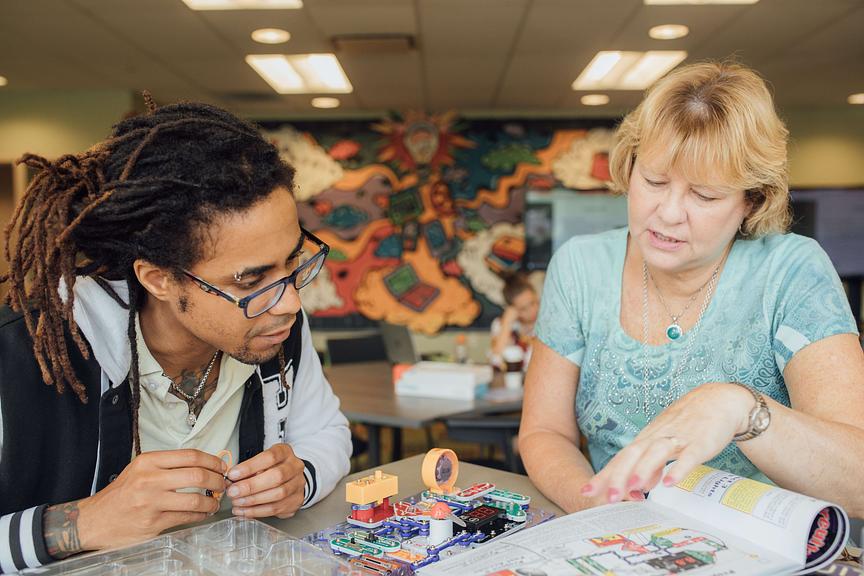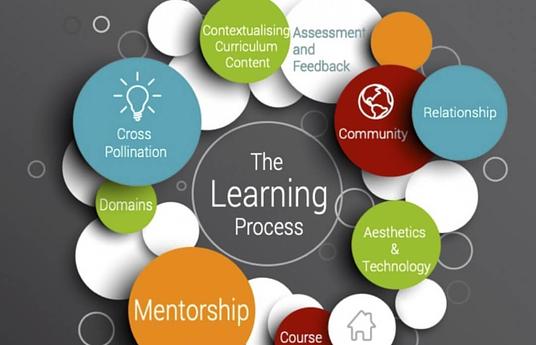Advances in technology and the science of learning mean that every teacher, no matter how long they’ve been in the classroom, has the opportunity to reimagine how learning works for their students.
The challenge is that there are so many priorities competing for teachers’ time and attention, it’s impossible to expect them to stay at the forefront of research and development.
The good news is that many educators are already reimagining what learning can be, rethinking their approach to teaching, and redesigning their classroom environments to meet the needs of today’s students and better prepare them for a future that’s already here.
How can professional development help educators stay ahead of the curve?
transformED is an initiative of the Allegheny Intermediate Unit that connects educators with the professional learning, technology access, peer networks, and grant funding they need to start, scale, and sustain transformational change.
transformED offers more than 100 free workshops each school year, open to all educators, including formal K–12 teachers and administrators, out-of-school educators, librarians, and teaching artists. transformED offers teachers professional development opportunities that are learner-centered, inquiry-driven, project-based, hands-on, and collaborative—just like learning should be in the classroom.
As an innovation lab for educators, transformED translates the latest developments and emerging trends in teaching, learning, and technology into practical and supported resources educators can use to make a difference for their students.
Testing and Piloting Emerging Technologies:
As technology evolves rapidly, so do educators' desire to leverage it to enhance classroom instruction. transformED creates opportunities for educators to experiment with such technologies alongside industry and higher education partners to strategize around instructional integration while discussing candidly current limitations and obstacles.
In 2016-2017, for instance, a series of workshops brought together visionary educators with partners that included Schell Games, Carnegie Mellon University'sEntertainment Technology Center, and IRL Labs to experiment with newly released immersive virtual and augmented reality hardware.
One such workshopconvened educators at Pittsburgh's historic Allegheny Cemetery to leverage augmented reality software to design and construct AR historical cemetery tours. By days end, participants could point their phones at a headstone, revealing an assortment of supplemental biographical text, pictures, and videos. Teachers subsequently utilized newly acquired skills to support students in creating their own AR tours in their communities.
National Partnerships:
-
School Retool: School Retool, created by Stanford's d.school and IDEO, is a professional development fellowship that helps school leaders redesign school culture using small, scrappy experiments called “hacks.” Hacks may start small, but they're built on research-based practices that lead to Deeper Learning. transformED is proud to have hosted 3 cohorts of School Retool, supporting principals, curriculum directors, special education directors and superintendents from Western Pennsylvania and West Virginia in rethinking school culture..
-
Code.org: Code.org is a nonprofit dedicated to expanding access to computer science in schools and increasing participation by women and underrepresented minorities. Their vision is that every student in every school has the opportunity to learn computer science, just like biology, chemistry or algebra. In 2018-2019, 65 secondary teachers from across Western Pennsylvania participated in the Professional Learning Program at transformED, offering new computer science opportunities in their districts.
Regional Partnerships:
transformED works closely with many regional organizations to reimagine professional development. Partners we are proud to work with include: Artist Image Resources, BirdBrain Technologies, Children's Museum of Pittsburgh, CMU Entertainment Technology Center, CMU School of Computer Science, Common Sense Education, CSTA Pittsburgh, EVERFI, Ioby, Montour School District, Remake Learning, Saturday Light Brigade, and Schell Games.
Impact:
In the last 2.5 school years, transformED has hosted nearly 250 workshops attended by over 2,400 educators from 139 public and charter school districts, representing 28 Pennsylvania counties and 3 states. Between 2016-2019, over a third of participants attending transformED programming, on average, worked in a high-poverty school district, as defined by the National Center for Education Statistics (75.1%+ students eligible for free or reduced-priced lunch).
transformED advocates for the equitable diffusion of learning innovation, which is made possible through the generous support of The Grable Foundation, The Pittsburgh Penguins Foundation, and The Hillman Foundation.




